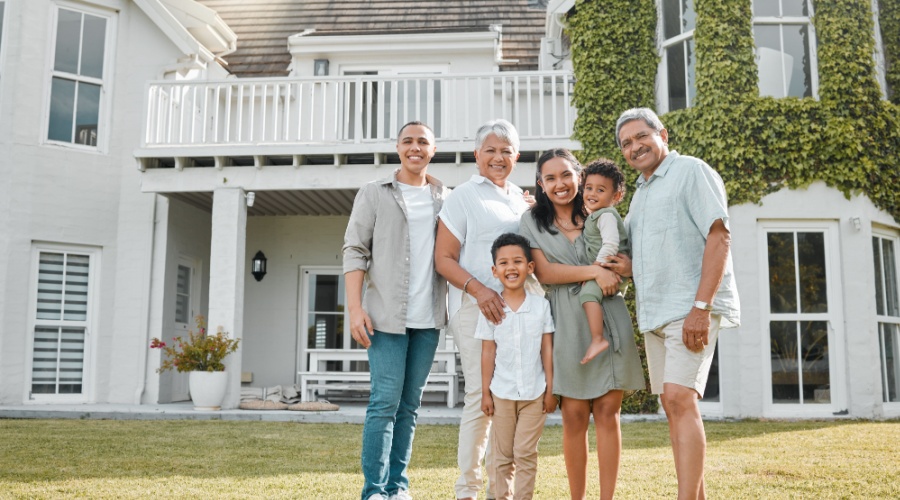Study Highlights Housing and Job Security Worries
In a recent study conducted by Abacus Data CEO David Coletto asked Canadians how they expect the country to change during the next five years. Here’s what they said:
- Cost of living: 59% expect affordability challenges to worsen.
- Housing affordability: 50% think it will deteriorate further.
- Climate risks: 47% believe extreme weather and disasters will intensify.
- Job security: 46% worry stable employment will decline, with automation and AI viewed as threats.
- Canada–U.S. relations: 45% expect ties with Washington to weaken.
It’s not a pretty picture, particularly for our kids and grandchildren, who face enormous obstacles when it comes to purchasing a first-time home or establishing job security for themselves. More than ever, our offspring need our help if they are to settle into a nice neighbourhood and have kids of their own.
Challenges Facing First-Time Homebuyers in Canada
For my daughter, who is getting married in September, owning her own home seems a long way away. Unlike our generation, we could manage a down payment by our late twenties or early thirties on two salaries of $25,000 a year — with both partners working full-time.
In 1980, I bought my first house for $60,000 in Bloor West Village, Toronto, an up-and-coming neighbourhood inhabited mainly by Eastern European immigrants at the time. It was also a dry zone. No liquor could be served in restaurants, and there were no liquor or beer stores in the area. It was exactly what I was looking for after living in a loft near the busy intersection of Queen and Spadina.
I loved this peaceful neighbourhood, located just north of Lake Ontario and west of High Park. A few years before buying the house, my partner and I were in a terrible accident in Kingston, Ontario. A drunk driver hit us head-on while we were driving along Old Highway 2. I’ll never forget that night and what transpired after the collision.
A year later, came a settlement of $17,000 from the drunk driver’s insurance company. The first thing I did with the money was to fly to Europe for my first trip across the Atlantic. We travelled by ferry and train from Britain to Greece, spending one week at Cape Sounion – on the Aegean coast – and another week on the Greek Islands. With the remaining funds, exactly $10,000, I secured a down payment and a five-year mortgage on a two-story semi-detached house in Bloor West Village. In 1980, the average price of a home in Toronto was approximately $76,000 according to data from Toronto MLS. Today the average Toronto home is approximately $1,100,00.
I loved my home with its own little backyard where I could grow a vegetable garden and a front porch where I could plant flowers. Off the kitchen was a tiny screened-in porch. Across the road was a park where I walked every day, and a few blocks north was the Runnymede subway station, which took me across town to work in downtown Toronto. I suspect that today, this house would be worth about $800,000 or more.
Today, our kids need approximately 20 times or more than I did to put a down payment on a house and secure a mortgage. As the Abacus study illustrates, 50 per cent of Canadians now believe that housing affordability will deteriorate further. Essentially, we need to give a lift to our children by getting them over the hump of buying their first home.
How Families Are Helping their Kids Buy Homes
My 33-year-old daughter will be married this September. She and her partner want a big wedding, not lavish, but large enough to invite their friends and family members. Ninety-five guests will be attending. Since the couple comes from divorced homes, all four parents are contributing an equal amount to cover the wedding costs.
The four of us have also decided to help out our kids with a down payment on a house. If there has ever been a time to leverage the value of our homes, through a reverse mortgage or by tapping into our savings, this is it. Without us, our kids are facing a level of precarity not seen in Canada for decades. As Abacus’ David Coletto remarks, “Our research suggests Canadians are bracing for a future that looks a lot like today: harder, more expensive, and less stable….Messages are rooted in the same emotional terrain: the widespread sense that life feels more fragile and uncertain than it should.”
In my heart, I’m happy to help out my daughter. Not only does it seem like the right thing to do, it also seems like the only thing to do. Without us, baby boomers, all our children would have an almost impossible hill to climb.
If you’re a Canadian homeowner aged 55+, the CHIP Reverse Mortgage from HomeEquity Bank could be the perfect solution for increasing your retirement income. You can borrow up to 55% of the value of your home with no regular mortgage payments. You only pay back what you owe when you sell your home or move out.
Call us today at 1-866-522-2447 to find out how much you could borrow, so you can start living the retirement you’ve always wanted.






























